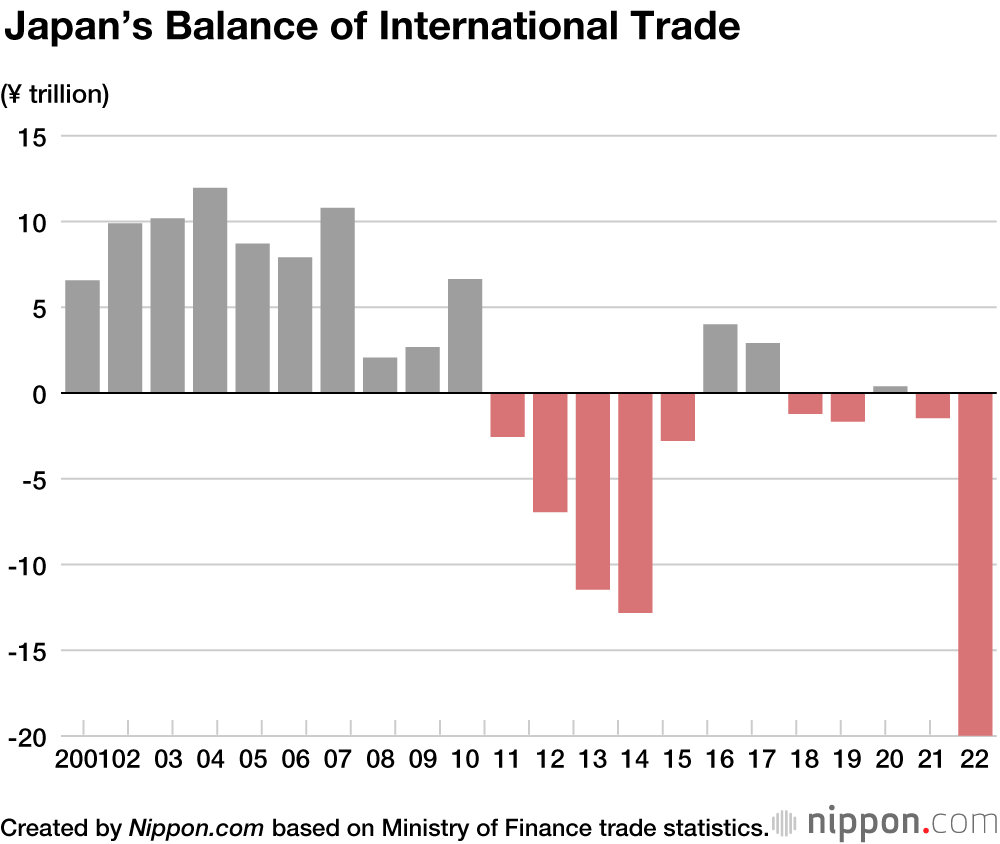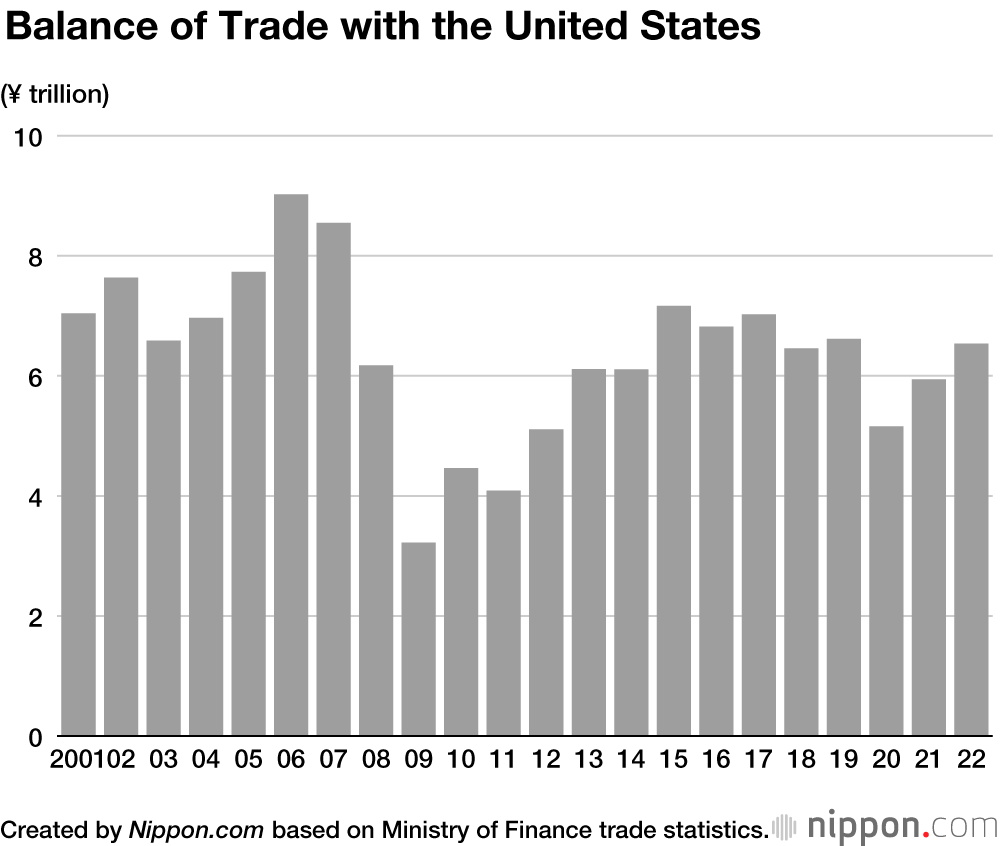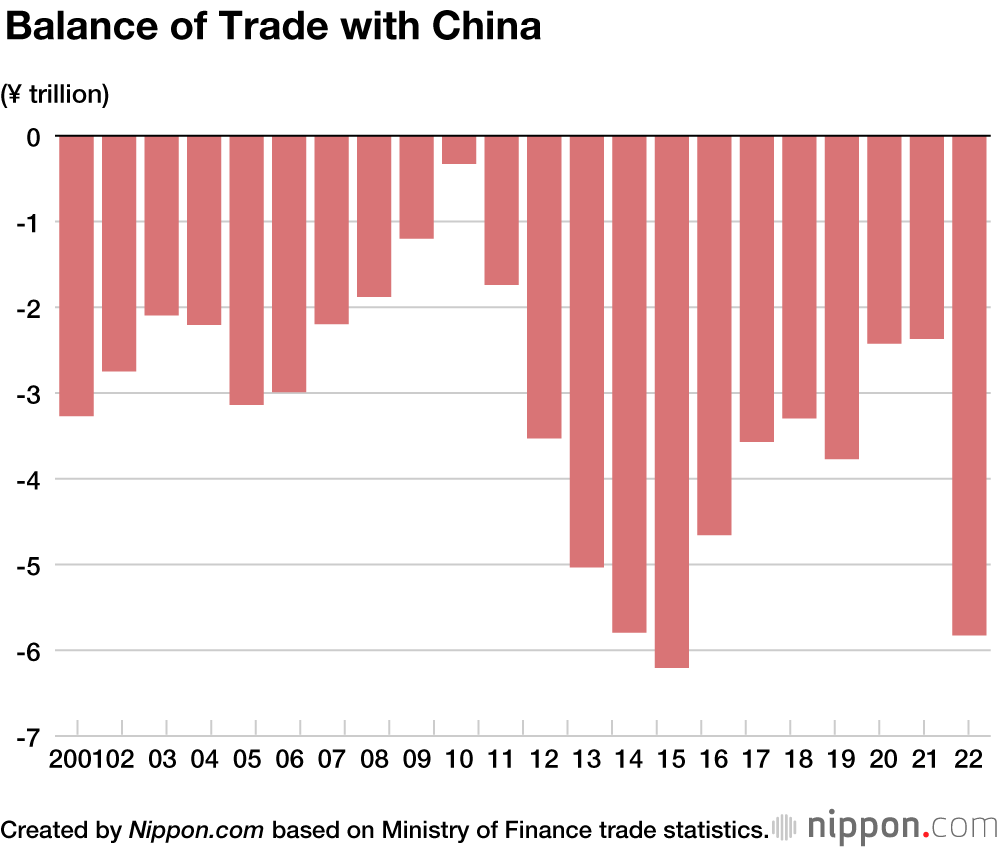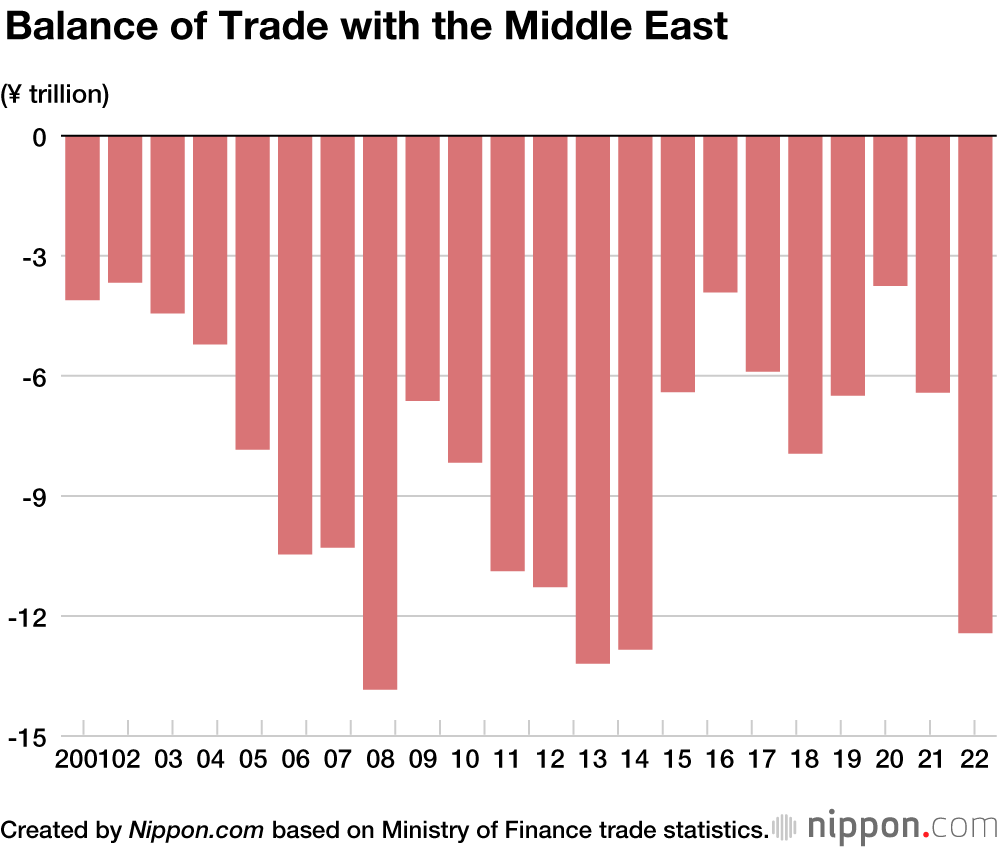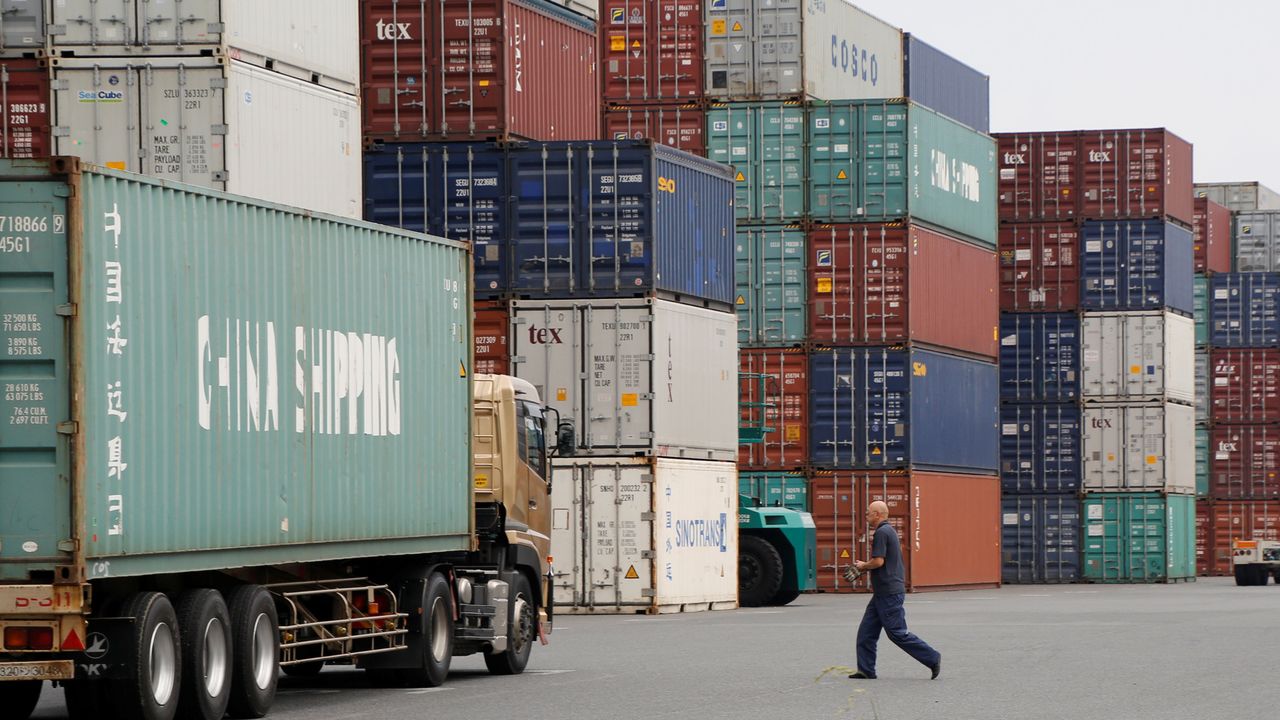
Japan Posts Record ¥20 Trillion Trade Deficit in 2022
Economy- English
- 日本語
- 简体字
- 繁體字
- Français
- Español
- العربية
- Русский
Japan’s balance of trade (exports minus imports) for 2022 announced by the Ministry of Finance showed a deficit of ¥20.0 trillion. This far exceeds the ¥12.8 trillion deficit of 2014, marking the largest trade shortfall since comparative statistics were first available in 1979. This is the second consecutive year for Japan to suffer a trade deficit. Imports have risen significantly due to the combination of a depreciating yen and soaring energy prices resulting from Russia’s invasion of Ukraine.
Imports increased 39.2% year on year, to ¥118.2 trillion, surpassing the ¥100 trillion mark for the first time in history. Imports of unrefined crude oil and liquefied natural gas shot up to ¥13.3 trillion (91.5% increase) and ¥8.5 trillion (97.5% increase), respectively. Crude oil prices rose 76.5% year on year in yen terms and 47.6% in dollar terms. The unit price in yen was a record high of ¥84,728 per kiloliter.
Japan’s exports rose 18.2% year on year, to a record high of ¥98.2 trillion, on the back of strong sales of automobiles (21.4% increase to ¥5.6 trillion), steel (24.2% increase to ¥4.7 trillion), and other commodities. But this increase was not enough to offset the surging imports.
By country or region, Japan enjoyed a ¥6.5 billion surplus with the United States, but registered a ¥5.8 billion deficit with China. The trade deficit with Middle Eastern countries rose to ¥12.7 billion due to the soaring energy prices.
In the past, Japan accumulated huge trade surpluses as an export powerhouse, resulting at times in severe trade friction with the United States. This was followed by a shift to overseas production of commodities that had generated trade surpluses, such as automobiles and electronics, while imports of LNG and crude oil surged amid the return to thermal power generation after the 2011 Fukushima nuclear accident. The combination of these factors has placed Japan in the difficult situation of confronting trade deficits that can balloon under the influence of changes in exchange rates and the prices of raw materials.
(Translated from Japanese. Banner photo: Container area near Tokyo Bay. © Reuters.)
